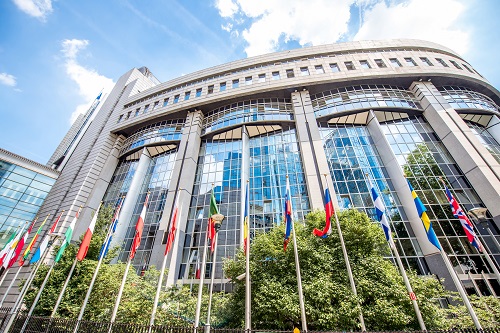MiCA is a new era to crypto regulation

The European Parliament’s approval of the Markets in Crypto Act, MiCA regulation continues to be hailed as a watershed moment for the crypto space, particularly for Europe.
Commenting on the development, Philipp Pieper, co-founder of Swarm, a regulated DeFi platform that’s a member of Germany’s Digital Finance Forum, says the legislation is a new beginning for crypto.
“A new era for global crypto has begun and Europe, for a change, has just become the leading innovator in the industry,” the Swarm co-founder noted in a statement shared with CoinJournal.
MiCA creates clear and unambiguous rules for crypto
As we reported on Thursday, EU lawmakers’ nod for MiCA saw the bloc become the first major global jurisdiction to have a comprehensive regulation framework for crypto.
Many within the digital assets space say the law offers a clear way forward for exchanges and other platforms, with investor protection measures clearly spelled out.
“The passing of the MiCA regulation has created clear and unambiguous guidelines for crypto companies across the European market… Most importantly, crypto investors now have far more security and won’t be left holding the bag when companies collapse due to dodgy business practices,” Pieper noted as he added his voice to the matter.
While the devil could be in the details, Pieper believes the legislation establishes Europe as the world’s blockchain hub. With the regulatory environment supportive of crypto innovation, it’s possible that Europe outpaces peers in markets still mired in regulatory uncertainty.
According to Pieper, MiCA’s implementation “shouldn’t be viewed as a bad thing,” but rather as a positive step for crypto companies within the EU bloc. Those with a clear framework within which to operate will march forward confidently, something that cannot be said for US-based counterparts.
It’s a “first-mover advantage” that companies like Swarm will certainly benefit from after having embraced regulation from the beginning. Swarm is regulated by Germany’s BaFin, and offers customers a chance to trade Real World Assets (RWAs) on-chain.
Regulation now a part of crypto
Looking ahead to MiCA implementation, Pieper says any pains likely to come from the new law will form part of the “growing” process for crypto. He opines that with things changing fast, regulation has become a necessary part of the industry’s growth.
“While some parts of crypto have an anti-government ethos, regulations are now a fact and resisting is no longer feasible,” he commented. “We know anecdotally there are roughly 300 organizations that are affected by this and need to register. The impending significant bottleneck and the potential of having to pause business operations is now very real for these organizations.”
The US is being left behind
As Pieper rightly pointed out, the US is seen to be lagging Europe when it comes to crypto regulation .In deed, as CoinJournal highlighted, a senior UK minister recently indicated it could release its own crypto rules within a year.
Across the Atlantic, this week’s fiasco that was SEC Chair Gary Gensler’s responses on the subject of crypto at a Congressional hearing left many unimpressed. The SEC chief’s lack of clarity when handling some of the questions has been heavily criticised.
Messari founder Ryan Selkis called the hearing a “train wreck” in relation to Gensler’s responses.
1/ It’s been 24 hours to reflect on Chair Gensler’s absolute train wreck of an oversight hearing yesterday.
Schadenfreude is satisfying, but here’s the substance of how ineffective, and out-of-touch the Biden admin’s financial regulators are right now.
— Ryan Selkis 🪳 (@twobitidiot) April 19, 2023
Some of the other most scathing comments came from Congressional Republicans, who have pointed out that the SEC cannot ask exchanges, for instance, to “come in and register” when there are no clear guidelines on the process.
Coinbase CEO Brian Armstrong shared his frustration at the lack of clarity this week, noting the US-based crypto exchange could relocate its base if the American regulatory environment remained as it is.
Source link








Comments are closed.